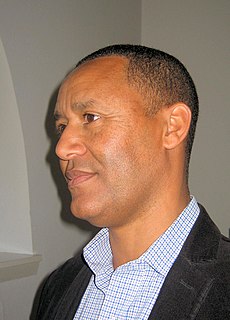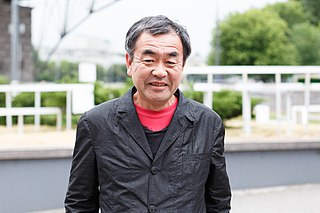A Quote by Thomas Huxley
Related Quotes
Nature is man's inorganic body -- that is to say, nature insofar as it is not the human body. Man lives from nature -- i.e., nature is his body -- and he must maintain a continuing dialogue with it is he is not to die. To say that man's physical and mental life is linked to nature simply means that nature is linked to itself, for man is a part of nature.
Man wants to see nature and evolution as separate from human activities. There is a natural world, and there is man. But man also belongs to the natural world. If he is a ferocious predator, that too is part of evolution. If cod and haddock and other species cannot survive because man kills them, something more adaptable will take their place. Nature, the ultimate pragmatist, doggedly searches for something that works. But as the cockroach demonstrates, what works best in nature does not always appeal to us.
He is not the soul of Nature, nor any part of Nature. He inhabits eternity: He dwells in a high and holy place: heaven is His throne, not his vehicle, earth is his footstool, not his vesture. One day he will dismantle both and make a new heaven and earth. He is not to be identified even with the 'divine spark' in man. He is 'God and not man.
Technology is neutral and sterile. Now, technology is the nature of modern man; it is our environment and our horizon. Of course, every work of man is a negation of nature, but at the same time, it is a bridge between nature and us. Technology changes nature in a more radical and decisive manner: it throws it out.
There are hidden contradictions in the minds of people who "love Nature" while deploring the "artificialities" with which "Man has spoiled Nature.'" The obvious contradiction lies in their choice of words, which imply that Man and his artifacts are not part of "Nature" : but beavers and their dams are.
Nature must be viewed humanly to be viewed at all; that is, her scenes must be associated with humane affections, such as are associated with one's native place. She is most significant to a lover. A lover of Nature is preeminently a lover of man. If I have no friend, what is Nature to me? She ceases to be morally significant. . .
You could say that my aim is ‘to recover the place’. The place is a result of nature and time; this is the most important aspect. I think my architecture is some kind of frame of nature. With it, we can experience nature more deeply and more intimately. Transparency is a characteristic of Japanese architecture; I try to use light and natural materials to get a new kind of transparency.





































